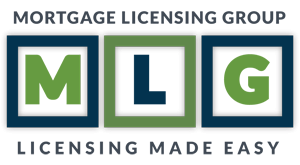Tennessee Mortgage License
Tennessee offers just one license for Brokering, Lending and Servicing activities. Reverse mortgage activities is however a separate authorization within TN. While there is no requirement for a brick and mortar location within the state, there is a requirement that you provide a Compiled financial statement reflecting at minimum tangible net worth of $25K for your most recent fiscal year end (FYE) . Tennessee requires a bond in the amount of $90K for Brokers and $200K for Lenders/Servicers. A named QI with 3 out of the last 5 years experience is necessary, although the QI does not have to hold the TN MLO license. An Anti-Money Laundering (AML) / Bank Secrecy Act (BSA) Policy and the most recent Independent Review is also required to be uploaded into the NMLS.
| State | License Name | State Fee | Bond Premium Est. | SOS Fee | MLG Processing Fee | Total |
| Tennessee | Mortgage License | $1,270 | $675 - $1,500 | $676 | Call for More Information | $2,621 - $3,446 |
License: Mortgage License
- Operating Status: Broker/Lender/Servicer
- Bond Amount: $90,000 - $200,000
- Net Worth: $25,000
- Brick & Mortar: No
- Financial Type: Compiled
Sample our License Ready program through our interactive United States Map!
Run our License Calculator to estimate licensing costs with all 50 states!
For more information or to speak to a representative for your state
call us today at 760-295-4040
**Fees & terms are subject to change without notice.**
Obtaining a mortgage broker license in Tennessee requires navigating a structured, compliance-focused process through the Nationwide Multistate Licensing System (NMLS). This license applies to both individuals and companies engaged in mortgage brokering, lending, or servicing.
Tennessee upholds strict eligibility requirements, including a criminal background check and credit report review to verify professional integrity and financial responsibility. Unlike some states, Tennessee requires mortgage companies to secure a surety bond, submit CPA-compiled financial statements (rather than specifically unaudited financials) to demonstrate net worth, and designate a qualifying individual with proven mortgage industry experience.
While a physical office in Tennessee is not mandatory, the state’s emphasis on accurate financial reporting, bonding, and experienced leadership ensures that licensed mortgage brokers meet high professional standards. Most states require a surety bond, but Tennessee’s additional CPA-compiled financial requirement sets it apart.
